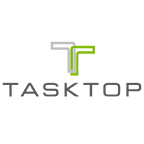How to optimize your software development co-op / internship program
Co-ops and internships for students and young graduates have become very commonplace in the software industry. Beneficial for interns and companies alike, an internship program can help budding software developers to enhance their skill set while contributing to the success of the business.
As a software engineering co-op at Tasktop, I’ve witnessed first-hand what it takes to execute a successful internship / co-op program. Below are some key benefits of hiring interns and some key considerations that can help you determine whether it’s the right program for your company, as well as the key benefits it can yield.
What do interns / co-op programs offer?
Hiring interns really helps the software industry grow. Internships are important to the success of the careers of aspiring software developers, and gaining work experience early on can help interns pinpoint what they really want out of their career. Hiring interns enables them to ‘learn by doing’ in a professional environment, which helps produce better software engineers that can drive the industry forward.
Interns provide the kind of diversity in thought that relies on a fresh pair of eyes. Interns are unique as they have little to no prior industry experience and limited knowledge of the standard conventions that take place in most software companies around the world. While this means they have a lot to learn, it also means that they don’t have a bias towards traditional systems, and can be useful in recognizing overlooked problems. Without a familiarity bias, they may find new, and better, ways of doing things. They might even discover a new process that could make the entire team more efficient.
- Develop your own developer
Interns don’t need to be temporary. With the right support and room to grow, you can train a skilled developer that is not only schooled in your approach to software development, but also one that becomes a loyal brand advocate too. Furthermore, when an intern becomes a full-time employee, you negate the need for onboarding, saving your company time and money.
There is also an element of exposure. If you are running a software company that targets niche markets, then there’s a chance that many people outside of your sector will not have heard of you, making it harder to attract talent. Software engineers like working in environments that they know will challenge them and help them to grow. The easiest way for them to find such environments is searching for jobs in companies that they are already familiar with and who have already built up good reputations. Hiring interns will increase the amount of people that have worked at your company by virtue of them being cycled out every eight months, and the more people who have worked at your company, the more chances your former employees will tell other software engineers how great it is work there. This can really help boost your company reputation and talent acquisition capabilities.
What are the key considerations for running your own internship program?
Do you have the resources to supervise and support a co-op intern? Without strong support, they have the potential to accidentally produce a lot of inefficient, unmaintainable code. To ensure this doesn’t happen, implement a mentoring program that is overseen by strong base of full-time software engineers that are willing to help and provide feedback to steer interns in the right direction.
Tasktop does a fantastic job of creating a strong foundation for their co-op program, with full-time experienced employees easily accessible and willing to spend time with helping new hires.
A rigorous code review process, like we have at Tasktop, prevents writing code that other engineers won’t be able to maintain in the future, and it helps interns get up to speed quicker by enabling them to look at code reviews from other engineers. Having a code review system is especially effective as a form of mentoring because interns now have the ability to teach themselves without requiring dedicated time from full-time engineers to continuously walk them through the code review process.
Without an efficient onboarding process, hiring co-ops and interns can be time-consuming for both the company and the intern — especially if you’re hiring new interns every eight months like Tasktop does. You can save time by hiring interns in large groups and training them simultaneously rather than one-on-one, which encourages questions and group activity, as well as forging a team spirit right from the beginning.
Conclusion
Hiring interns is a complex endeavor, but one that can potentially have a great payoff for your company. As a Tasktop co-op, I’ve expanded my skill set, learnt how to overcome new challenges, and feel I have played a vital role in changing the software development and delivery landscape.
If you’re interested in working at Tasktop, please view current openings on the careers page and/or contact us. Do also get in touch if you’re thinking about running your own internship / co-op program too, we’d be more than happy to help!
Written by: Kyle Swensson
Originally published at www.tasktop.com on July 20, 2017.
